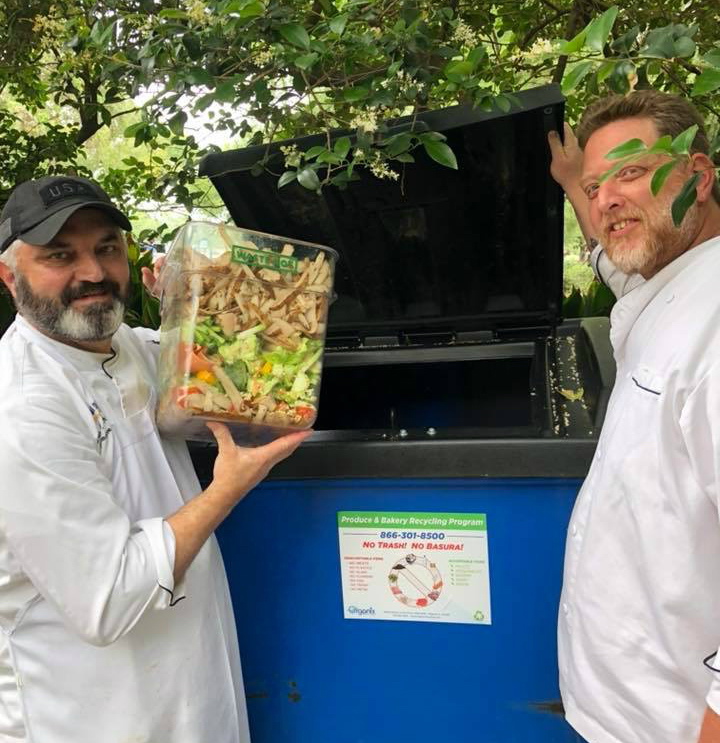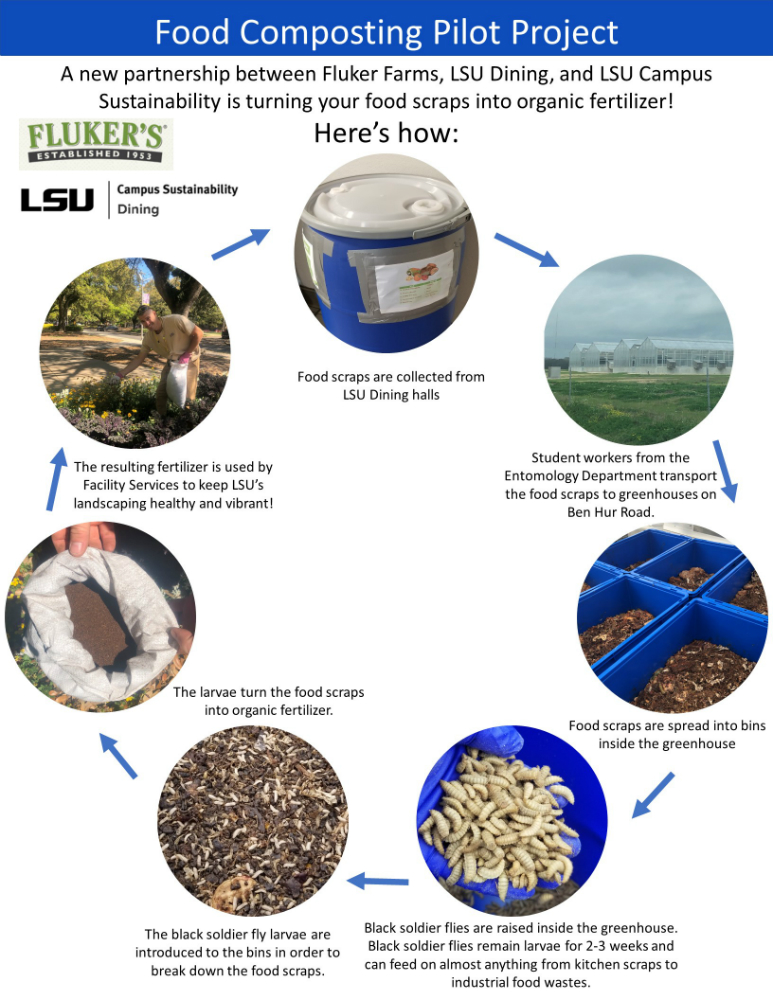Zero Waste Initiatives
Pre-Consumer Organics Recycling
Campus Sustainability is partnering LSU Dining to send all pre-consumer / clean kitchen food scraps to farms for animal feed, rather than to the landfill. All LSU Dining Halls are currently participating. We estimate that at least 75 tons per year are diverted from the landfill annually as part of this program, equivalent to avoiding 29.82 metric tons of greenhouse gas emissions avoided insce April 2018 by composting kitchen waste.

Dining Hall Food Composting Pilot Project
A new partnership between Fluker Farms, LSU Dining, and LSU Campus Sustainability is turning your food scraps from the 459 Dining hall into organic fertilizer. First, food scraps are collected from LSU Dining halls. Student workers from the Entomology Department then transport the food scraps to greenhouses on Ben Hur Road. Food scraps are spread into bins inside the greenhouse where black soldier flies are raised. Black soldier flies remain larvae for two to three weeks and can feed on almost anything from food scraps to industrial food wastes. The black soldier fly larvae are introduced to the bins to break down the food wastes. The larvae turn the food waste into organic fertilizer, which is used by Facility Services to to keep LSU's landscaping healthy and vibrant. If successful, this pilot project will be scaled up to both LSU dining halls and hopefully will serve the entire student body in the future.

Promoting Zero-Waste Events on Campus
Campus Sustainability is kicking off an initiative to assist student organizations in hosting zero-waste events and utilizing the new composting resources on campus. Campus Sustainability has applied for a "Keep Louisiana Beautiful" grant to purchase a stock of compostable utensils, plates, cups, and napkins, which student organizations will be able to request for their events for free. If you are interested in reducing the waste of your student organization's events, follow the tips below and reach out to [email protected] with your questions and concerns.
Zero- Waste Event Planning
Strategies for campus organizations to divert event waste from the landfill
Coordinate with Campus Sustainability Before Your Event
- Email [email protected] to reserve free recycling and trash bins that can be delivered, collected, and emptied by Facility Services
- Coordinate with Campus Sustainability to pick up biodegradable plates, cups, utensils, and napkins
- Work with Campus Sustainability to determine which campus composting program best fits your event’s needs
- Purchase bulk instead of individually wrapped materials
- Let your catering company know about your zero waste initiatives
Reduce Waste Before It Happens
- Focus on digital advertising and limit handouts, flyers and giveaways
- Advertise your event as Zero Waste and encourage attendees to bring their own water bottles, coffee mugs, plates, or utensils
- Serve lids, straws, and napkins at request
Be Proactive During Your Event
- For large events, make recycling stations highly visible with signs or balloons
- Have volunteers at recycling stations direct attendees to recycle their waste
If you would like your event officially certified as zero waste, you will have to weigh your trash, recyclables, and compost to determine how much waste was successfully diverted form the landfill. If you are interested in this option, contact Campus Sustainability.